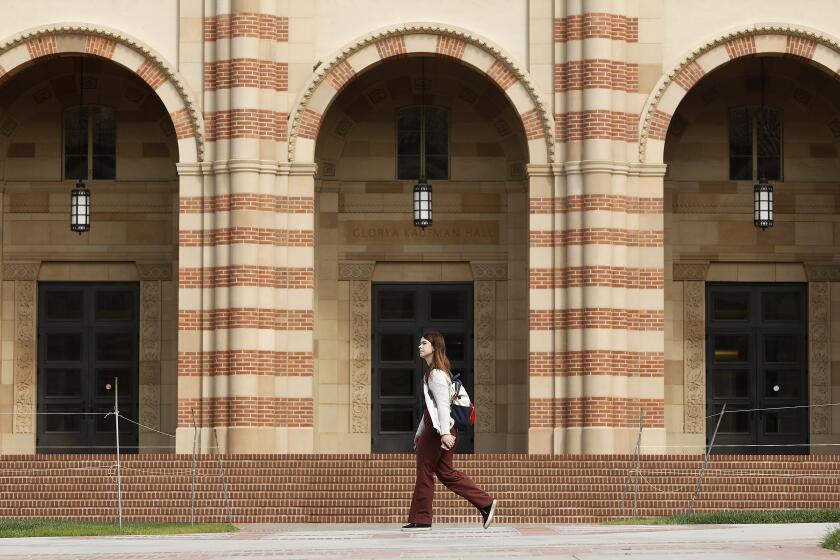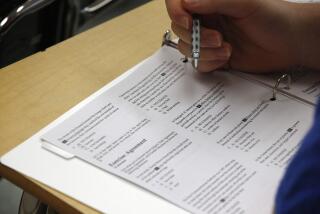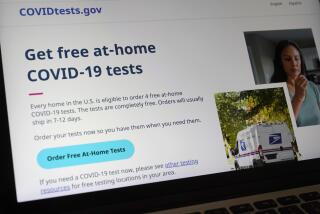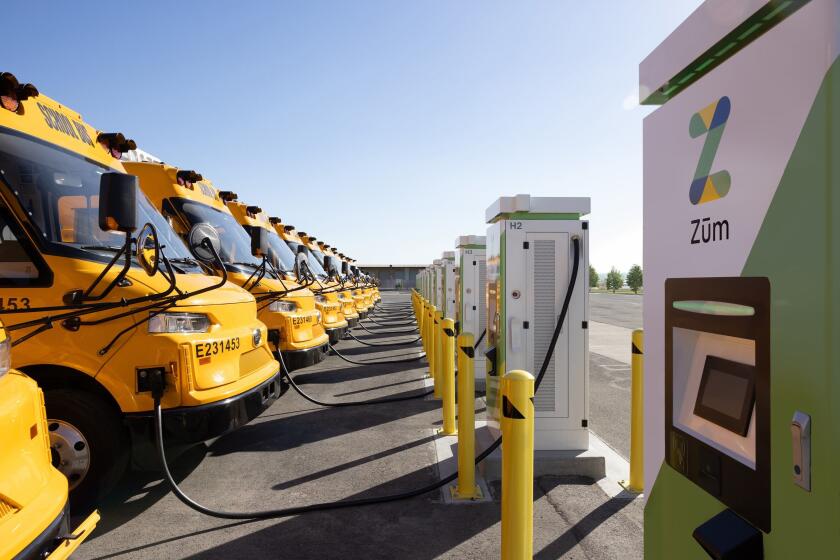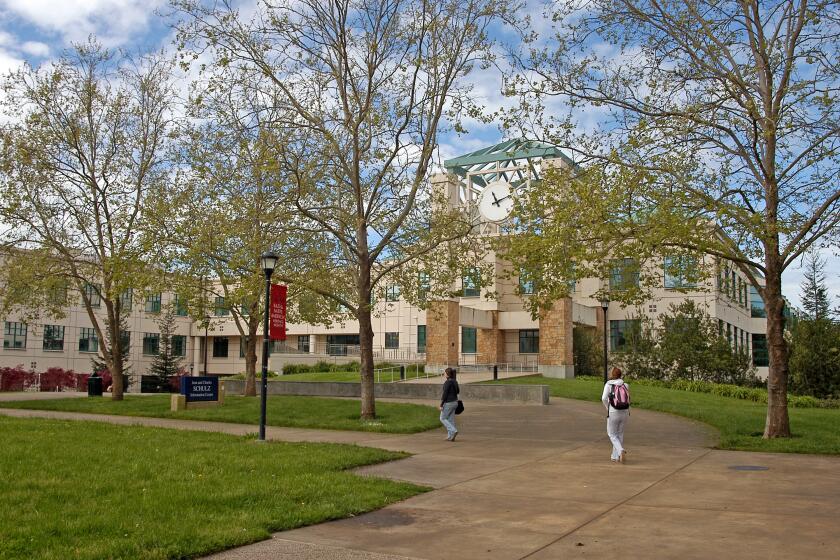Why your high school kid may be taking the SAT test at your kitchen table
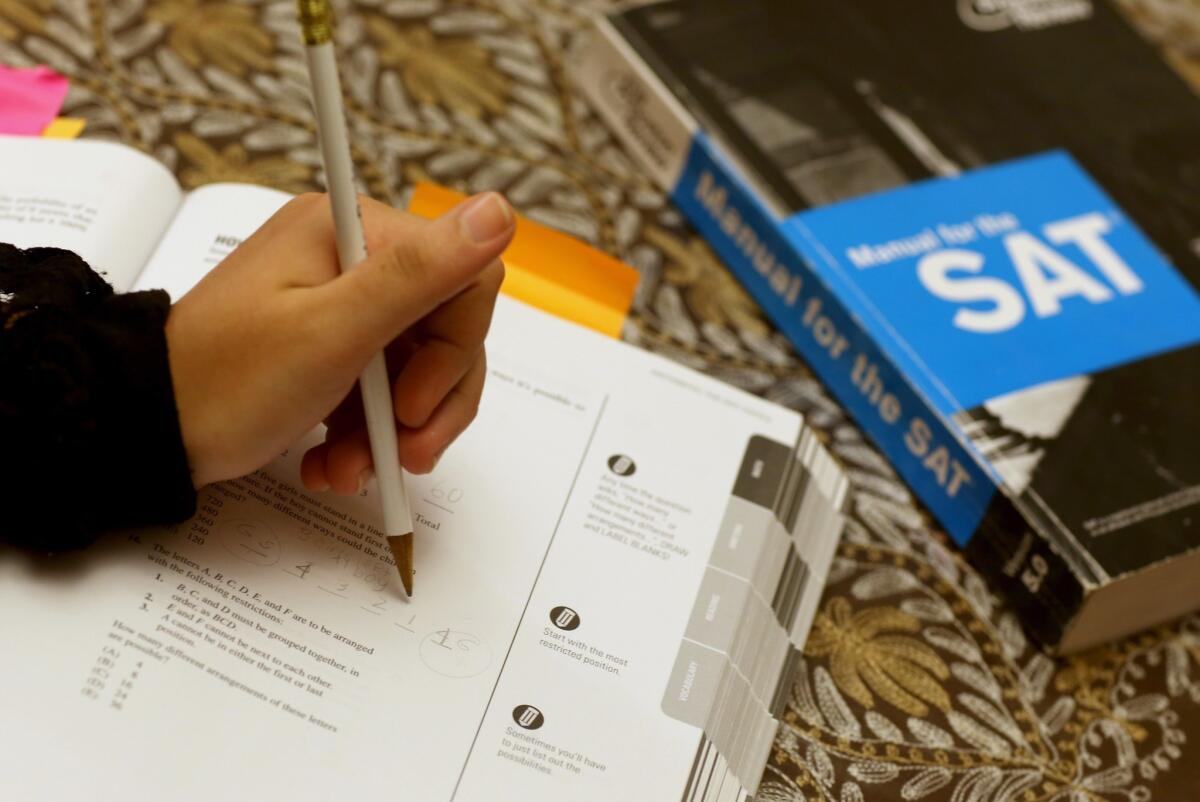
High school students will be able to take an at-home online SAT if the coronavirus outbreak keeps schools closed into the fall, the College Board announced Wednesday, a radical shift that is raising concerns about equity and the security of the standardized college admissions test.
If administered at home, the College Board intends to keep the format of the exam “as close to the SAT students have been preparing for,” with some possible changes to ensure security of the exam, officials said. The organization said it would share more details about the at-home test should it look like that version will be required.
The announcement comes as colleges across the country — including the University of California — are making the SAT and ACT tests optional as an admissions requirement for students entering college in fall 2021. At the same time, the test is coming under increasing scrutiny as a barometer of college success, especially for underserved minority students.
Acknowledging disruptions caused by the coronavirus pandemic, the UC and Cal State systems will ease admissions requirements for applicants.
College Board officials said in a conference call Wednesday that they support colleges “in whatever flexibilities they adopt” to deal with the COVID-19 pandemic and that they don’t know how test-optional admissions might affect students’ participation.
“We’re utterly committed to making sure that all students, particularly low-income students, have the option to distinguish themselves in admissions” by submitting test scores as well as grades, Chief Executive David Coleman said.
About 770,000 students scheduled to take the SAT this spring were unable to do so. March, May and June exam dates were canceled.
If it is safe to do so, testing could resume as normal in August and the College Board would offer a weekend test date every month through the end of the calendar year as well as in-school tests, officials said.
If schools do not reopen in the fall, a digital, at-home exam will be offered.
“The College Board would ensure that at-home SAT testing is simple; secure and fair; accessible to all; and valid for use in college admissions,” the organization said in a statement.
With millions of students nationwide attempting to continue their schooling through online learning, however, inequities have become readily apparent, with many low-income, minority and disabled students unable to access remote instruction.
Mark Rosenbaum, a legal director at Public Counsel, is the lead attorney in a lawsuit against the UC system that alleges use of the SAT in admissions decisions is inequitable and discriminatory by race, class and disability status. He said shifting the test to an at-home, online environment would worsen inequities.
“For those individuals who don’t have online capacity or don’t have the same sort of opportunities to work at home as more privileged students do, that inequity is going to be exacerbated,” he said. “I don’t think it’s a solution for anything other than the College Board’s economic interests.”
The nonprofit organization took in more than $1 billion in revenue in 2017, according to its tax filings.
The College Board previously announced that it would deliver digital exams for 3 million Advanced Placement students this spring. Those exams, which will not be proctored, may be taken with open notes and books. They will also be shortened to just 45 minutes from the usual three to four hours and will only assess content learned up to early March.
The at-home SAT would be proctored remotely, an issue that is raising privacy concerns.
A College Board official said software applications would lock other programs on a test-taker’s computer and use its microphone and camera to monitor the surrounding environment.
Ana Mendoza, staff attorney with the American Civil Liberties Union of Southern California, said such measures bring up questions about how information will be stored, for how long and who may access it.
“Some people aren’t comfortable being recorded out in public, much less in their own homes,” Mendoza said.
Students have a legal expectation of privacy when it comes to their homes, biometric information such as facial characteristics and their educational records, Mendoza said. Students younger than 18 have even greater protections.
The College Board did not specify how it might modify the test or address privacy concerns if it is administered in students’ homes.
“We are working to understand students’ environmental challenges and requiring only what is most necessary to ensure test security. We’re also exploring partnerships to ensure students have access to technology, and quiet and safe testing spaces, should they not have these in their homes,” the College Board said in an email.
Times staff writer Teresa Watanabe contributed to this report.
More to Read
Start your day right
Sign up for Essential California for news, features and recommendations from the L.A. Times and beyond in your inbox six days a week.
You may occasionally receive promotional content from the Los Angeles Times.
